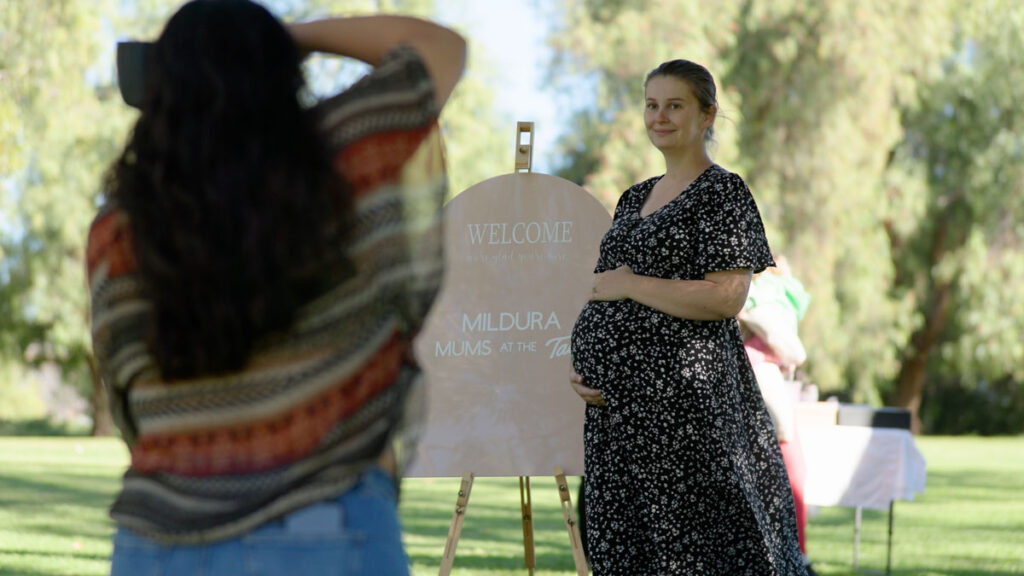As a youth and young adult ministry specialist, I thought my dream had come true! I was given a young adult church to lead and I was so excited for the opportunity to work with college students and see what the Lord would do with a young yet educated group of adults. Without going into much detail, months later I was prayerfully asking God how I could bring other generations, aside from young adults, into my church. Why such a change? Did I find myself loathing the eclectic millennial generation? No, I love them . . . the problem was that I was not enough, and neither were they.
By and large we live in a world of consumer Christianity. We’ve been sold many lies by the devil—one of the biggest lies that plagues the Christian church is that “your spiritual needs should be met”. It’s a lie for several reasons. First of all, as human beings, let’s be honest, we’ve always struggled to tell the difference between what we need and what we want. Since the time when we were a toddler and argued with our parents about how much we needed ice-cream to the retired baby boomer who believes they need to go on several luxury cruises every year. Things get even uglier when we take this demonic mindset into church; especially considering the purpose of going to church is not to fill our own spiritual needs but to glorify God. They get ugly because not only are we trying to meet our own supposed “needs” but because so is everyone else in church, and everyone has their own idea of which need is more important—and it’s usually “my need over yours!”
The disagreements over everything from worship style to carpet colour turn into arguments, which turn into debates, which sometimes turn into outright church division and church desertion. While some think such divisions are a means for church planting, we need to realise that we’re supposed to be multiplying disciples and not dividing them.
This misunderstanding of what constitutes a “need” hit me in the face as a pastor when I realised that having an entire congregation of young adults meant I had a membership who lacked both finances and experience. How well does a church run if there are no mentors, or children to mentor? Please imagine what our potlucks were like considering that most people were single college students. When couples did have children, without adequate children’s programs (or teachers), they didn’t stay because their needs changed and they went and found a church where their new needs were met. Let’s not get started on offerings or tithes either . . .
No generation can stand alone. We were designed to live in a diverse community of ages and we are healthier as individuals when we live with at least two other generations different to our own. In fact studies are showing that the mental and psychological illnesses that often beset older communities are tied to older generations not mixing with younger people. Children learn better when they have older generations taking them by the hand. Young adults desire and need older mentors who listen to what they are going through and only offer advice or testimonies when invited. Every single individual, no matter their age, contributes to the health of a community due to the fact that a diversity of ages is beneficial to overall health. The reality of a monogenerational church is also this: if someone outside of the generational mission walks into the church off the street, they will likely be neglected, which can lead them to not only leaving the church but quite possibly walking out with the perception that the whole “Jesus thing” is not for them.
Many of our churches however are multigenerational. Multigenerational means that there are several generations who attend the church. But let’s be clear, multigenerational doesn’t necessarily mean intergenerational. Just because everyone shares the same worship space doesn’t mean they get along; or even talk to each other for that matter. For example, I gave a series of seminars on intergenerational discipleship to one church that I was told was quite intergenerational. However, after the series I had one member come up to me and say, “I thought we were an intergenerational church, but when you asked if we were intergenerational if we excluded talking to people we were related to, I could not honestly answer that we were.” For many, the only people they converse with at church outside of their own generation are those they are related to either by blood or marriage. This leaves many in the church having no relationships with those outside of their age group.
So what is an intergenerational community then? They are multigenerational for sure but it goes beyond that. An intergenerational community is made up of a significant number of people from three or more generations, where each generation is mutually benefitted from having a relationship with people from other generations. Ask yourself this question, “If a specific generation in my church were to disappear, would it affect me negatively?” If after going through each generation in your mind you answered “it wouldn’t affect me” or “the church would be better without that age group” then not only is your church not intergenerational but you may need to have a chat to the Lord about what you can do to improve your relationship with those in that category.
If we as a Church believe that every member is a member of the body of Christ, or that every believer is a priest of Christ, we need to realise that intergenerationality is an area of grave importance to our relevance as Christians. Even in Old Testament times, when a city, tribe or the whole nation of Israel was called together, everyone was expected to turn up, including women and children. The devil loves to divide and conquer, and what better way to do it than to make God’s people believe that they are better off being divided to avoid disputes rather than doing our best to work on how we can be united though diversity.
Is there a place for age-specific or monogenerational ministry? Absolutely. There are some things that need to be done with just one age group due to common developmental or experiential reasons; i.e. Sabbath School or Grey Nomad events. However, most of what we do should be done intergenerationally. [pullquote]
The young-adult church my wife and I were pastoring changed through prayer and counsel. We moved the service to a better time for families and established Sabbath Schools not only for children, but included more than one option for adults. We encouraged all to be part of the ministry team and purposely sought out those with experience to be part of our community. We let the greater community know that all were truly welcome, no matter their age, and something beautiful happened—a miracle. By the time we left the attendance had increased by 80 per cent as did the involvement of members in ministry. We went from three children attending to having three children’s divisions. We had a retired businessman leading our fundraising team, children participating up the front and mentoring taking place in both directions. The church was not only becoming healthier but it was growing. Did I mention offerings and tithes began to grow too, along with the quality of the potlucks?
No generation can stand alone. If you don’t believe me, read Joel 2:28. This promise can only be fulfilled by both young and old. If Jesus can restore the hearts of the fathers to their children, and the hearts of the children to their fathers, then what are we waiting for? Let’s stop the divisions and tear down the walls of neglect, and nurture communities of intergenerationality for Christ.
For more information visit igdiscipleship.com.
Pastor Joe Azzopardi is a PhD doctoral candidate at Avondale who has been a teacher, a church pastor and a school chaplain and is passionate about intergenerational churches.






